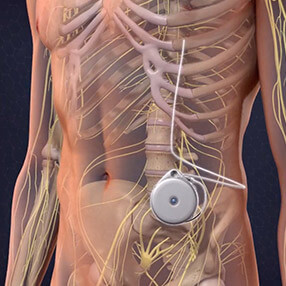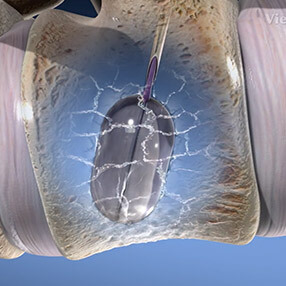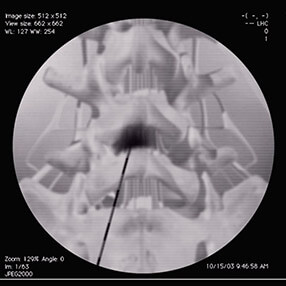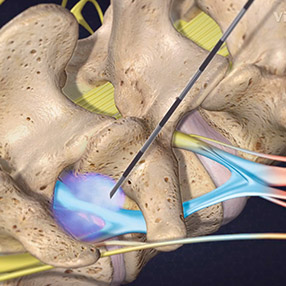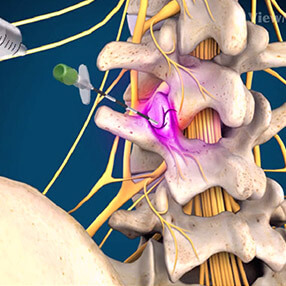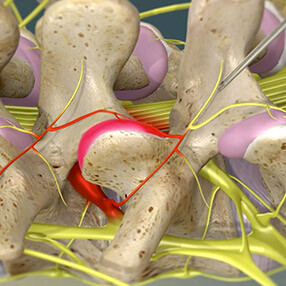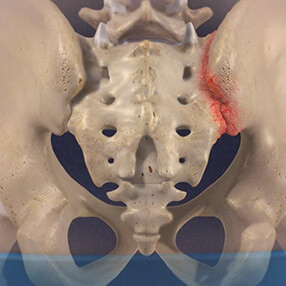If you have chronic back, neck or knee pain, you’ve likely tried different therapies to improve your discomfort. If you’ve tried medication, physical therapy or surgery and haven’t seen the results you need to improve your quality of life, you may qualify for Radio Frequency Ablation.
Radio Frequency Ablation (RFA) is an injection procedure used to reduce chronic nerve pain, specifically facet joint pain or sacroiliac joint pain caused by arthritis or other degenerative changes, or from an injury. This minimally invasive procedure is performed with a local anesthetic and mild sedation. During this procedure the nerve is heated, nerve impulses are diminished and the pain is reduced or alleviated. The treatment’s impact varies among individuals; however, it can last up to two years.
TYPES OF RADIO FREQUENCY ABLATION
There are different types of radiofrequency ablation procedures, including:
- Cervical. Your cervical spine is the very upper part of your spine, or your neck. If you’re experiencing neck pain, upper back pain or even shoulder pain, a cervical radiofrequency ablation may help relieve your pain.
- Genicular. The term “genicular” refers to the knee, so a genicular nerve radiofrequency ablation is a procedure that helps alleviate chronic knee pain by targeting nerves in the knee.
- Lumbar. Your lower back is referred to as the lumbar region, and radiofrequency ablation can also be performed on the nerves in this area to reduce discomfort.
- And others. There are other conditions that can benefit from radiofrequency ablation, including arthritis, pelvic pain and even peripheral nerve pain.
WHAT TO EXPECT DURING THE PROCEDURE
Before knowing if radiofrequency ablation will help your pain, your physician at Summit will first conduct what’s called a diagnostic nerve block. This is a non-invasive procedure that allows your doctor to administer anesthetic to the nerves suspected to be responsible for sending pain signals to your brain.
If you experience at least a 50% reduction in your pain after the procedure, you’re considered to be a candidate for the next step, radiofrequency ablation.
During this procedure, your physician will use x-ray guidance to insert a small needle to administer heat energy to the nerves. The needle is insulated to ensure that this energy doesn’t damage any of the surrounding tissues, only the targeted nerves. Prior to the administration of the current, you’ll receive local anesthesia to minimize any discomfort, although you can request mild intravenous anesthesia to help you be more comfortable.
WHAT TO EXPECT FOLLOWING THE PROCEDURE
Patients shouldn’t expect immediate relief following the procedure. In fact, for some, pain can increase mildly for several days before it gets better. The procedure is an outpatient one and you can return home the same day, although your injection site may be sore. You can ice the site, and plan on resting for the remainder of the day. If you were under mild sedation, don’t plan on driving until the following day.
For some patients, their nerves will regrow over time and their pain will return. However, if your first procedure was successful, your physician can generally repeat the procedure for continued pain relief of your condition.
Contact Atlanta’s Premier Pain & Wellness Center
Whether you’re considering a genicular nerve radiofrequency ablation or a lumbar radiofrequency ablation, learn more about your candidacy and the benefits and risks at Summit Spine & Joint Centers. Our Georgia pain clinic helps patients experiencing a variety of acute and chronic pain conditions to improve their discomfort and live a pain-free life. Call us today at (770) 962-3642 or contact us online!


